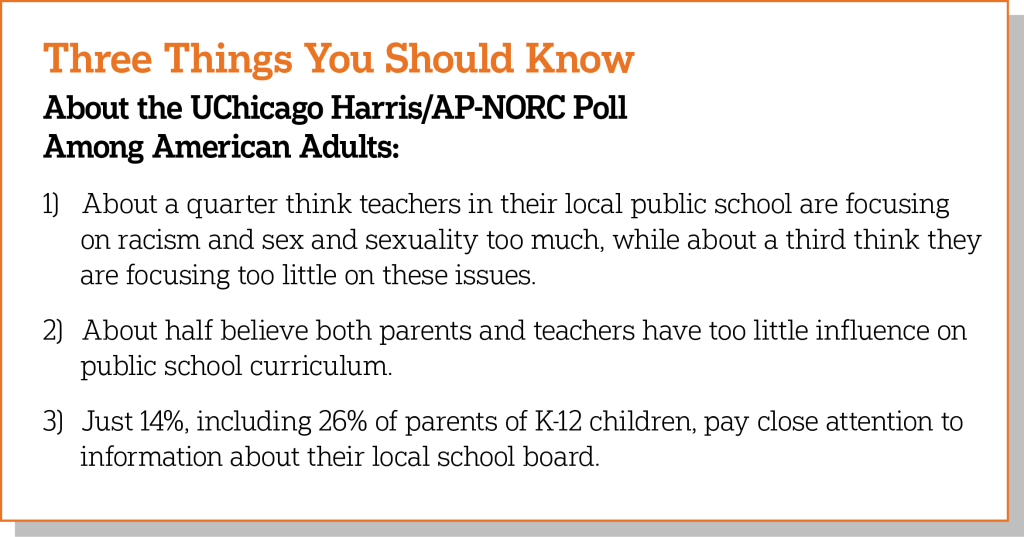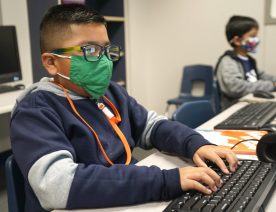
April 14, 2022
Americans are largely divided about the role of public schools in teaching children about issues related to sexuality and racism, according to a new poll from the University of Chicago Harris School of Public Policy and The Associated Press-NORC Center for Public Affairs Research.
While several state and local governments consider bills that prohibit teaching about sexual identity, 23% of Americans share that view and think their local public school is focusing too much on issues related to sex and sexuality. But about a third of the public (31%) feels it is focusing too little on such issues.
When it comes to discussion of racism in the United States, 37% feel their public schools are focusing on it the right amount. Again, the rest of the public is split with 27% who feel their local schools are focusing on racism too much and 34% who feel there is not enough focus.
There are also differing opinions among Americans about who should have influence over school curriculum. Half of Americans believe parents and teachers have too little influence on the curriculum in public schools. Republicans are more likely to think parents have too little influence and Democrats are more likely to think teachers have too little influence. However, there are no significant differences in attitudes about the role of parents on curriculum between parents of children attending K-12 schools and non-parents.
The survey finds majorities of both Democrats and Republicans do not support policies that prohibit books about divisive topics or prevent teachers from teaching about sex and sexuality. Yet, there are sharp partisan divides when it comes to views on allowing transgender students to use bathrooms that match their preferred gender identity or renaming schools named after historical figures that supported slavery or segregation.
Regarding COVID-19 precautions in public schools, 43% favor vaccine mandates and 37% favor mask mandates for students attending school in-person. However, parents of K-12 students are less likely to support these precautions than those without school aged children.
While many people disagree with policies surrounding the teaching of race and sexuality or the administration of COVID-19 guidelines, the study shows few Americans pay close attention to their local school boards or engaged with them beyond following news or voting in school board elections.

The nationwide poll was conducted by the University of Chicago Harris School of Public Policy and The Associated Press-NORC Center for Public Affairs Research from March 17 to March 21, 2022, using AmeriSpeak®, the probability-based panel of NORC at the University of Chicago. Online and telephone interviews using landlines and cell phones were conducted with 1,030 adults. The margin of sampling error is +/- 4.0 percentage points.
Suggested Citation: AP-NORC Center for Public Affairs Research. (April 2022). “No Public Consensus on How Schools Should Discuss Sexuality and Racism.” https://apnorc.org/projects/no-public-consensus-on-how-schools-should-discuss-sexuality-and-racism/








